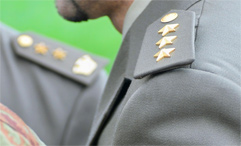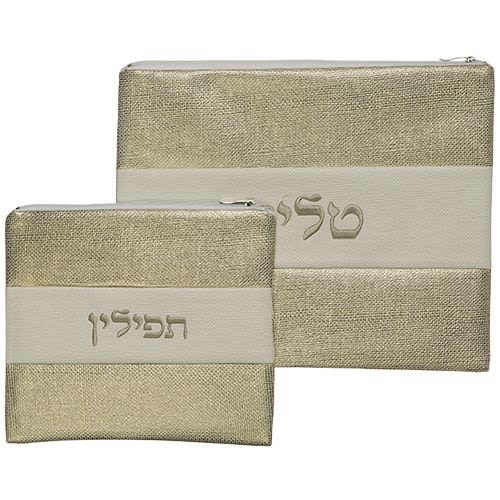
Nasso: Shouldering Pride
Some people do good deeds demonstratively so that everyone will see, “carrying” their mitzvoth on their shoulder like an officer wearing his rank…

"And to the sons of Kehat he did not give, since their sacred service was to carry on the shoulder…" (Numbers 7:9).
Moses gave wagons and pairs of oxen to the sons of Gershon and Merari, but not to the sons of Kehat. Their task was to carry the holy utensils of the Tabernacle on their shoulders. Out of all the three Levite clans, Kehat's task was the most prestigious. Yet, our sages warn of an important ethical message here, not only for the Kehati clan, but for all of Israel for posterity.
The Talmud Yerushalmi[1] scoffs at the “pious shoulder carrier.” He is the one who does good deeds demonstratively so that everyone will see, “carrying” the mitzvoth on his shoulder like an army officer who wears his rank on his shoulder. With this in mind, the sons of the Kehati clan are liable to feel superior to their brothers of the Gershoni and Merari clans who transport the walls and the outer construction materials of the Tabernacle with oxen and wagons. The Kehatis might smugly say, “We're not ox-drivers; we carry the Holy Ark, the altars and the Menorah on our shoulders.” Hashem doesn't want that type of an  attitude.
attitude.
The above Talmud passage is a stiff chastisement to the sons of Kehat: first, don't think that you're any better than the other Levites. You all have your designated holy tasks and each is important. Second, you attained your place of honor because of your lineage and not because of your own achievements, so you have nothing to boast about. Third, just as the Holy Ark and utensils are kept far from the public eye, you must keep your good deeds far from the public eye. Yes, you must carry them on your shoulder, but do your job quietly and not demonstratively.
This is an important lesson for all of us, especially those who serve in public positions of spiritual leadership. Hashem has chosen you to perform a specific task. Whatever responsibilities you carry on your shoulders should be "sacred service" and not a self-serving device to for your own aggrandizement. How do we know the difference between "sacred service" done for Hashem's sake and between self-service, done for a personal gain and self-interest? Micah the Prophet provides the answer[2]: "What does Hashem require of you but to do justice, to love kindness, and to walk humbly with your G-d." Any person who considers himself better than any other human is far from justice, kindness and humility.
What's more, our sages warn that Hashem chastises a person in a position of responsibility and says, "You think that I have given you a position of power and authority? I have given you slavery!"[3] The Prime Minister, the Rosh Yeshiva and the Rabbi of the Community must understand that they must not wear pride on their shoulders to wield power over others. They are public servants. The Rosh Yeshiva must shoulder total responsibility for each boy in the yeshiva, treating each one with love and understanding while caring for the boy's welfare and future rather than for his own prestige. The same goes for anyone in a position of authority.
Hashem chose Moses and David to lead the Jewish People because of their extreme humility. Everything they did was in total dedication to performing Hashem's will, utterly devoid of personal considerations and gain. They illuminated the world yet regarded themselves as lower than a worm. They didn't need to wear their rank on their shoulders for their greatness and dedication to their G-d and their people were apparent in everything they did. We learn from our great leaders of all times that humility is the true sign of greatness, not the rank on your shoulders.










Tell us what you think!
Thank you for your comment!
It will be published after approval by the Editor.